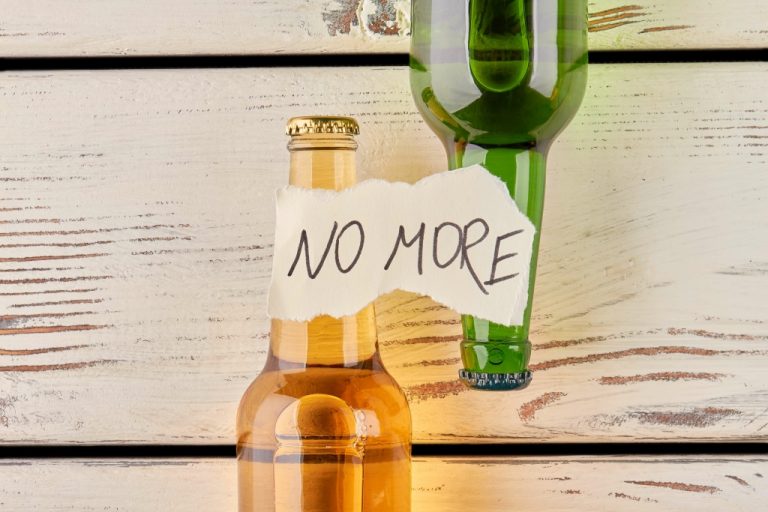Tapering your alcohol intake, or slowly decreasing it over time, can help you avoid severe alcohol withdrawal symptoms. Little data is available about the safety and effectiveness of alcohol tapers. In contrast, robust evidence supports http://www.30dneynochi.ru/board/viewtopic.php?p=56240 quitting alcohol while under medical supervision. If you struggle with drinking, the safest way to quit is under a doctor’s care. If you drink heavily, your doctor may recommend quitting with the help of a medical detox center.
- Generally, light to moderate drinkers should plan to taper for a week or more.
- DT can be fatal, and a person going through them should have medical support in a hospital or rehab facility.
- You may even ask your friends and family not to drink while around you.
- Addiction experts have not conducted many studies on alcohol tapering, as tapering is not considered the ideal way to quit alcohol.
- If you properly taper your alcohol use, you’re less likely to experience alcohol withdrawal symptoms.
With these things in mind, you need to weigh the pros and cons of tapering your alcohol use—ideally with someone you trust—to make a fully informed decision. It will launch a series of billboard and newspaper advertisements on Monday setting out ways to help reduce youth vaping. http://www.vseslova.ru/index.php?dictionary=medicine&word=reabilitaciya_stomatologicheskaya BAT is among many vape manufacturers opposed to a full ban on disposable e-cigarettes. It says doing so could fuel an illegal market, or push people trying to quit smoking by using vapes to buy tobacco. If you usually drink dark roast coffee, switch to a light roast, to start.

Understand your relationship with alcohol
If your body is used to a certain amount of alcohol, you may feel certain effects when you stop. How you feel when you stop drinking is largely based on how often and how heavily you drink. People who only drink occasionally probably won’t notice any physical http://8disk.net/z4608/ or psychological symptoms. People who have a severe reaction to quitting alcohol should seek emergency treatment. If you’re unable to reduce how much you drink, you may have a disease called alcoholism that requires professional addiction treatment.
The hardest thing will probably be to stop yourself from starting again. I’ll be honest, your chances of staying sober on your own are slim to none. It doesn’t mean you have to go to rehab (though that’s certainly an option). You can try support groups, therapy, psychiatrists, spiritual groups, and outpatient rehab services.
How Does Alcohol Affect Your Brain?
Alcoholism, or alcohol use disorder, is a mental health issue. You’ve been conditioning your brain to work on alcohol, and over time, its structure has physically changed[2]. Overcoming this with sheer willpower is going to be difficult, but it can be done.
- Typically, alcohol withdrawal symptoms happen for heavier drinkers.
- Even after the most serious withdrawal symptoms have lessened, some people may experience post-acute withdrawal syndrome (PAWS) – the prolonged symptoms of detox.
In medical detox, doctors and nurses provide around-the-clock care while helping you detox from alcohol. We offer a full continuum of care and are an in-network provider for a range of insurance companies, including Aetna, Cigna and America’s Choice. Contact us today to learn more about the insurance we accept and find an alcohol addiction treatment program that can work well for your situation. You don’t have to let the fear of alcohol withdrawal stop you from cutting back or quitting. You may decide to seek medical treatment for your withdrawal symptoms or decide to enter a professional detox or rehab center.
Tips to help you cut down
Here’s a specific plan to guide you through the initial stages of your journey, helping you take control of your relationship with alcohol. But Dr. Streem knows that it can be hard to recognize signs of alcohol abuse in ourselves. Often, people with alcohol use disorder find that other people in their lives spot their addiction long before they do.
- It provides the necessary medical expertise and support to ensure a safe and comfortable detoxification process.
- If you’ve been unable to quit on your own, you should consider attending an alcohol rehab center.
- It’s important to understand what to look out for and what to expect.
- A doctor may prescribe a benzodiazepine as part of the tapering process.
- During this taper, you may notice you’re feeling pretty good again.
- Everyone is different, so it’s ultimately up to you to decide if you want to taper or not.
Besides its positive health benefits, it can help you quit drinking after weeks or months. Contact emergency health services if you or someone you know experiences more than one symptom of severe alcohol withdrawal. Alcohol withdrawal is potentially fatal, especially for people with an alcohol addiction.
Can You Stop Drinking Alcohol Cold Turkey?
For example, Week 1 of your taper would then be 28 to 32 miles. In addition to cutting mileage, keep your run intensity to your goal race pace, and no faster. Tapering is one of the most important aspects of the marathon training cycle and yet, it is also one of the most difficult to implement because runners fear cutting back on training. In theory, tapering sounds great- cut back on mileage, sleep in, and eat.















